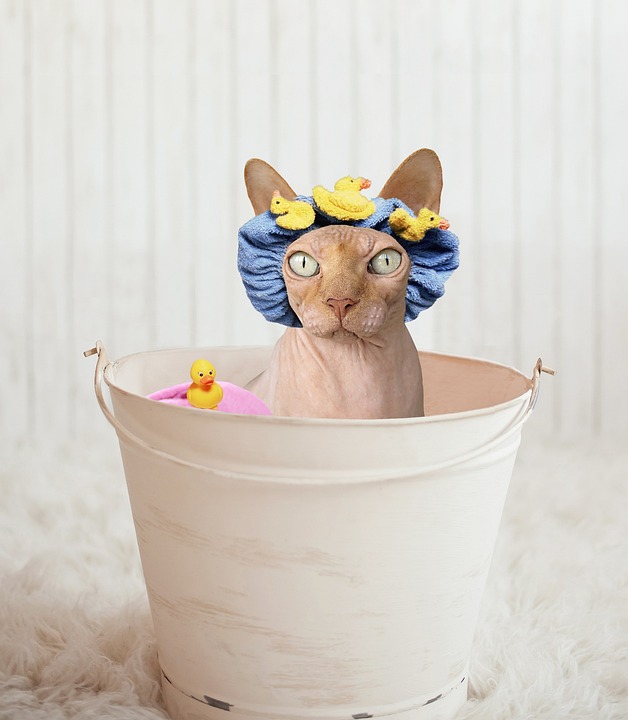Living with a cat suffering from chronic nasal congestion can be challenging. Not only does it affect their quality of life, but it can also be a cause for concern for their owners. In this article, we will explore various ways to help your feline friend breathe easier and manage their chronic nasal congestion. Additionally, we will address some frequently asked questions (FAQs) to provide a comprehensive understanding of this condition.
Understanding Chronic Nasal Congestion in Cats
Chronic nasal congestion in cats can be caused by a variety of factors. These can include allergies, infections, foreign objects in the nasal passages, dental issues, or even tumors. It is important to identify the underlying cause in order to develop an appropriate treatment plan.
Symptoms and Signs to Look Out For
If your cat is suffering from chronic nasal congestion, you may notice symptoms such as sneezing, coughing, nasal discharge, difficulty breathing, reduced appetite, and lethargy. It is crucial to monitor these signs and consult with a veterinarian for a proper diagnosis.
Seeking Veterinary Assistance
When dealing with chronic nasal congestion, it is important to seek veterinary assistance. A veterinarian will be able to conduct a thorough examination and determine the underlying cause of the congestion. They may recommend diagnostic tests such as X-rays or blood work to further evaluate your cat’s condition.
Managing Chronic Nasal Congestion in Cats
Keeping the Environment Clean
Regular dusting and cleaning can help reduce the allergens and irritants present in your cat’s environment. Vacuuming, mopping, and washing bedding regularly can help minimize the triggers that contribute to nasal congestion.
Minimizing Exposure to Irritants
Identify and eliminate potential irritants such as cigarette smoke, strong perfumes, and cleaning products with strong odors. These can irritate your cat’s nasal passages and worsen their congestion.
Promoting Humidity
Increasing the humidity in your cat’s environment can help alleviate nasal congestion. Use of humidifiers or steam therapy can help moisten the air and make breathing easier for your cat.
Clearing Nasal Passages
Saline nasal drops or sprays can help moisturize and clear your cat’s nasal passages. Nasal irrigation techniques, such as using a bulb syringe or a neti pot, can also be effective in removing excess mucus.
Supporting Immune Health
A balanced diet that includes essential vitamins and minerals can help boost your cat’s immune system. Consult with your veterinarian to ensure your cat is receiving the appropriate nutrition. In some cases, supplements or medications may be recommended to support immune health.
Providing Comfortable Resting Areas
Elevated beds can help reduce congestion by allowing your cat to rest in a slightly elevated position. Additionally, providing warm and cozy spaces can help soothe their nasal passages and make breathing easier.
Frequently Asked Questions (FAQs)
Q1. Is chronic nasal congestion common in cats?
Chronic nasal congestion can occur in cats, but it is not as common as acute or temporary congestion.
Q2. What are the potential causes of chronic nasal congestion?
The potential causes of chronic nasal congestion in cats can include allergies, infections, foreign objects, dental issues, or tumors.
Q3. Should I bring my cat to the vet if they have chronic nasal congestion?
Yes, it is important to consult with a veterinarian if your cat is experiencing chronic nasal congestion. They can help determine the underlying cause and recommend appropriate treatment.
Q4. Can I use over-the-counter decongestants for my cat?
No, it is not recommended to use over-the-counter decongestants for cats without veterinary guidance. Some medications can be toxic to cats, and using the wrong treatment can worsen their condition.
Q5. Are there any home remedies I can try to alleviate my cat’s nasal congestion?
Saline nasal drops, steam therapy, and keeping the environment clean can be effective home remedies to alleviate nasal congestion in cats. However, it is important to consult with a veterinarian before trying any home remedies.
Q6. Can chronic nasal congestion be cured?
The underlying cause of chronic nasal congestion will determine the prognosis. In some cases, the condition can be managed and controlled, but it may not be completely cured.
Q7. How important is a clean environment in managing chronic nasal congestion?
Maintaining a clean environment is crucial in managing chronic nasal congestion. It helps reduce allergens and irritants that can worsen your cat’s condition.
Q8. What type of diet should I provide for my cat with chronic nasal congestion?
A balanced diet that includes essential vitamins and minerals is important for supporting your cat’s immune health. Consult with your veterinarian to determine the most appropriate diet for your cat.
Q9. Can chronic nasal congestion affect a cat’s lifespan?
Chronic nasal congestion can impact a cat’s quality of life, but its effect on lifespan will depend on the underlying cause and how well it is managed.
Q10. Are there any breeds more prone to chronic nasal congestion?
While chronic nasal congestion can occur in any breed of cat, certain breeds may be more prone to respiratory issues due to their anatomy. These include flat-faced breeds such as Persians and Himalayans.
Conclusion
Dealing with chronic nasal congestion in cats requires a multi-faceted approach. By creating a clean and comfortable environment, promoting humidity, clearing nasal passages, and supporting their immune health, you can significantly improve your cat’s quality of life. Remember, it’s always wise to consult with a veterinarian for a proper diagnosis and tailored treatment plan. With the right care and attention, your feline companion can breathe easier and enjoy a happy, healthy life.








